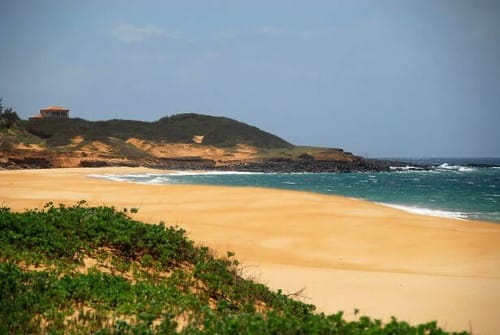Hawaii's Maui County Takes Big Oil To Court Over Climate Crisis

Story originally published by Drilled News
Hawaii’s Maui County filed a liability claim against 20 fossil fuel firms on Monday, joining 23 other U.S. communities suing to hold the fossil fuel industry accountable for their role in delaying action on climate change. Maui is the third community in Hawaii to file such a suit.
The county alleges that major petroleum corporations including BP, Chevron, and ExxonMobil executed a decades-long campaign to downplay the climate risks of their products in order to delay regulation and maximize profits.
Maui County has been sweltering through its hottest year on record, and in 2019 experienced one of its worst wildfire seasons on record. Rising seas are also affecting the Pacific island county.
“Maui County is vulnerable to rising sea levels, with four islands and nearly 300 miles of coastline,” Maui Mayor Michael Victorino said in a press release. “Worsening coastal erosion threatens shoreline structures, miles of coastal roads and infrastructure. Maui County taxpayers should not be left to bear the staggering costs of climate change impacts.”
The county is suing to shift some of these costs, estimated in the billions of dollars, onto the fossil fuel corporations.
Maui filed its lawsuit on October 12 in the state’s 2nd Circuit Court.
“Similar to Big Tobacco litigation, which ultimately held those companies liable for their dangerous products and disinformation campaigns, the Big Oil companies sold products that they knew would harm the environment, with devastating effects on public resources and infrastructure, leaving local governments and taxpayers to bear the costs,” Mayor Victorino state’s in the release. “With all the demands our citizens face in these times of economic, social and healthcare emergencies, it’s unjust to let the oil companies scoop up profits and avoid paying for any of the damage they’ve inflicted.”
Maui County says it has more than $3.2 billion in assets at risk of inundation from sea level rise by 2100, including more than 11 miles of major roads, as well as 760 buildings such as hotels that are critical to the island’s tourism-based economy.
The county also projects more than 2,000 residents will be displaced due to rising seas by 2100.
Coastal erosion jeopardizes not only Hawaii’s famous beaches, but also sites like burial and fishing grounds important to Native Hawaiian culture and spiritual beliefs. The islands’ Indigenous communities, as well as low-income and communities of color, are most at risk from climate change harms.
According to Maui County’s legal complaint, the defendants “embarked on a decades-long campaign of deception designed to maximize continued dependence on their products and undermine national and international efforts to rein in greenhouse gas emissions.” This alleged deception involved various front groups and public relations campaigns designed to create a false debate over the reality of human-caused global warming.
While this reality is no longer in dispute, and fossil fuel companies publicly admit climate change is a problem, they continue to mislead the public with greenwashing advertisements, Maui argues,“by employing false and misleading advertising campaigns promoting themselves as sustainable energy companies.” Exxon did not immediately respond to a request for comment.
Maui’s lawsuit is part of a rising tide of climate accountability litigation against the fossil fuel industry by cities and states. In March, the city and county of Honolulu sued 10 fossil fuel corporations over deception on climate risks. Minnesota and the District of Columbia launched back-to-back lawsuits in June. September saw four new lawsuits, with Hoboken, NJ; Charleston, SC; Delaware, and Connecticut all filing cases within the first two weeks of the month.
In the past three years, two dozen communities across the country have taken legal action against major fossil fuel firms for causing the climate crisis.


